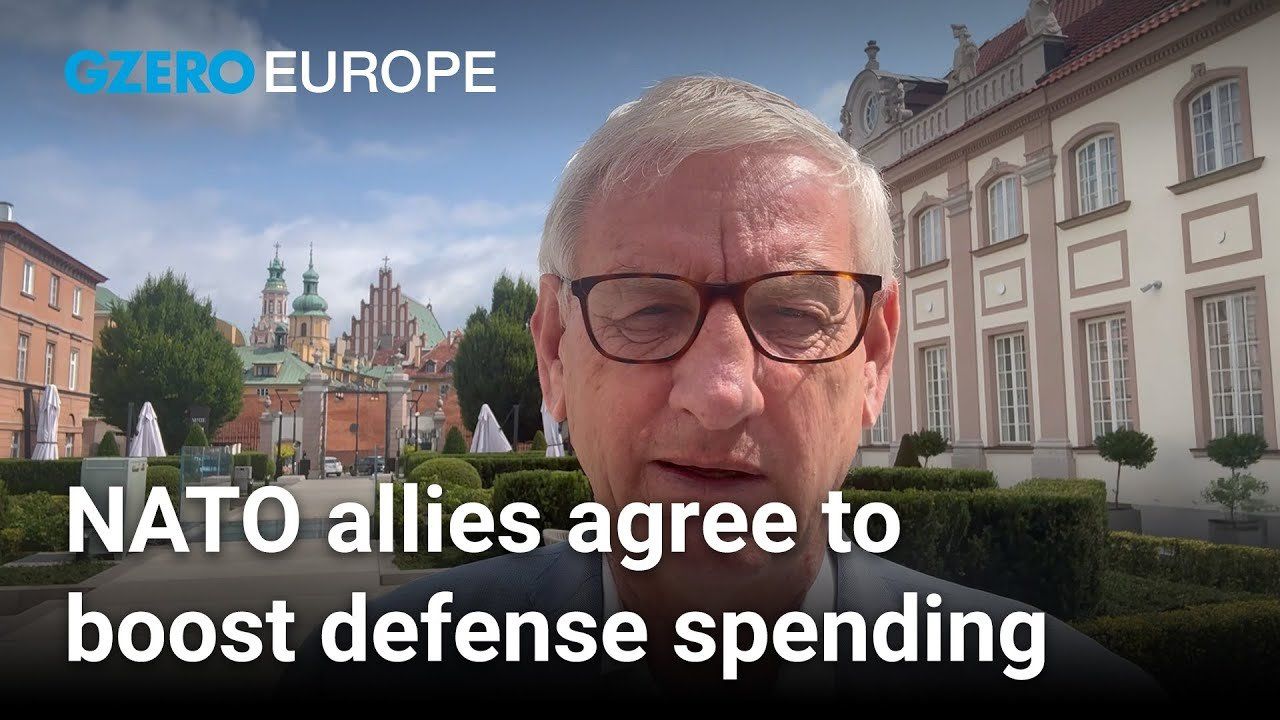June 27, 2025
In this episode of Europe in :60, Carl Bildt discusses the outcomes of the NATO Summit and where Europe stands with the Israel-Iran conflict.
On NATO’s new plan to spend 5% of their GDP on defense by 2035, Bildt acknowledges that, on paper, it appears to be a significant achievement. However, he expresses skepticism about its feasibility stating, “That's not real and not going to happen, and I think that will create some problems further down the line.” Bildt also suggests that the new target was largely motivated by a desire to appease Donald Trump. He adds, “Making Trump happy with flattery, that seems to be what some in NATO consider essential for European security these days.On the Israel-Iran conflict, Bildt describes the situation as highly uncertain. He notes that "Europeans are hoping for a revival of diplomatic efforts," especially as worries grow about Tehran's potential actions. With ambiguity surrounding inspections, international accords, and Iran’s nuclear ambitions, Bildt warns: "If the Iranians decide to go nuclear after this, it's going to take quite some time, but it's difficult to see that they can be stopped."More For You
- YouTube
At the 62nd Munich Security Conference in Munich, GZERO’s Tony Maciulis spoke with Benedikt Franke, Vice Chairman and CEO of the Munich Security Conference, to discuss whether the post-1945 global order is under strain or already unraveling.
Most Popular
- YouTube
Zelensky agrees: elections matter #PUPPETREGIME
As more small businesses move sales, payments, and customer relationships online, they unlock new opportunities, but they also become easier targets for cyber-criminals and other threat actors.
TOKYO, JAPAN - FEBRUARY 8: Japan's Prime Minister Sanae Takaichi, leader of the ruling Liberal Democratic Party (LDP), places a red paper rose on the name of an elected candidate at the LDP headquarters on general election day on February 08, 2026 in Tokyo, Japan. Voters across the country headed to polls today as Japan's Lower House election was held.
Photo by Kim Kyung-Hoon - Pool/Getty Images
When Japanese Prime Minister Sanae Takaichi called snap elections last month, it was a big gamble. Holding a winter election just four months into her tenure with no real policy record to run on?
© 2025 GZERO Media. All Rights Reserved | A Eurasia Group media company.
